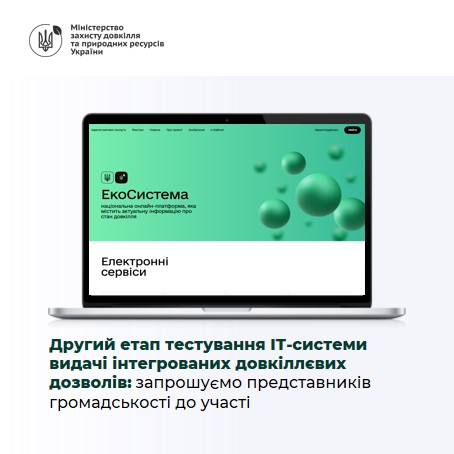In May, with the support of the “Best Available Techniques (BAT) for Ukraine” project, testing began for a new IT system designed to issue integrated environmental permits for large industrial enterprises. Representatives of major industrial facilities participated in the first round of testing, and the second round — open to representatives of civil society — has now been announced.
The new IT system is being developed to automate, increase transparency, and improve the efficiency of the permitting process for the biggest industrial enterprises. The Ministry of Environmental Protection and Natural Resources of Ukraine is inviting representatives of civil society to take part in this second testing phase. The introduction of this system is a part of Ukraine’s broader reform to reduce and control industrial pollution in alignment with EU integration commitments.
To participate in the testing, interested individuals must complete a Google registration form. Registration is open until 30 May 2025.
During the first round of testing, industrial representatives were invited to try out the system. Their participation helped businesses better prepare for submitting integrated permit applications and allowed developers to evaluate the system’s functionality and logic.
The new online permitting system, developed in accordance with EU legislation, is expected to come into force in August 2025.
The “Best Available Techniques (BAT) for Ukraine” project has also developed a financial mechanism to support investments in pollution-reduction technologies. With the project’s support, four Ukrainian industrial enterprises from various sectors are already implementing best available techniques, and Ukraine continues adapting its legislation in line with the EU Industrial Emissions Directive (Directive 2010/75/EU).
The project “Best Available Techniques (BAT) for Ukraine” implemented by Deutsche Gesellschaft für Internationale Zusammenarbeit (GIZ) GmbH on behalf of Federal Ministry for the Environment, Climate Action, Nature Conservation and Nuclear Safety (BMUKN).

